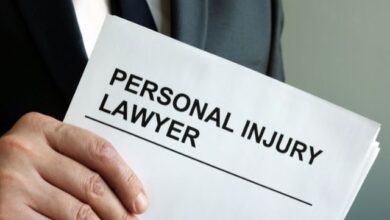Can You Still Get Disability Benefits after a Workers’ Compensation Settlement?

If you’ve been injured at work, you may have received workers’ compensation benefits to help cover medical expenses and lost wages.
But what happens if your injury is severe, and you’re wondering: Can I get disability after workers comp settlement? Let’s break it down.
1. Understanding Workers’ Compensation
Before we dive into whether you can receive disability benefits after a workers’ compensation settlement, let’s understand what workers’ compensation is. Workers’ compensation is a state-mandated insurance program that provides benefits to employees who are injured or become ill on the job. These benefits typically cover medical expenses and a portion of lost wages.
2. Workers’ Compensation Settlement
When you’re injured at work, you may file a workers’ compensation claim. If your claim is approved, you’ll receive benefits to help you recover. In some cases, however, you may reach a settlement with your employer or their insurance company. This settlement is often a lump-sum payment that closes your workers’ compensation case.
3. Disability Benefits Overview
Disability benefits, on the other hand, are typically provided through Social Security Disability Insurance (SSDI) or Supplemental Security Income (SSI) programs. These programs are administered by the federal government and provide financial assistance to individuals with disabilities who are unable to work.
4. Can You Get Disability Benefits after a Settlement?
The short answer is yes, it is possible to receive disability benefits after a workers’ compensation settlement. However, several factors come into play, and the process can be complex.
5. Eligibility for Social Security Disability Benefits
To be eligible for Social Security Disability benefits, you must meet certain criteria:
- You must have a disability that prevents you from performing substantial gainful activity (SGA).
- Your disability must be expected to last at least 12 months or result in death.
- You must have accumulated enough work credits through your employment history.
6. How Workers’ Compensation Settlements Affect SSDI
When you receive a workers’ compensation settlement, it can affect your eligibility for SSDI benefits. The settlement amount and the type of settlement you receive can impact your SSDI benefits in the following ways:
- Offset: If your workers’ compensation settlement is considered a “lump-sum” settlement, it may lead to an offset. This means your SSDI benefits could be reduced to prevent “double dipping.”
- Apportionment: Some states have laws that require apportionment of your settlement, which means it may be divided into different categories, affecting your SSDI eligibility differently.
7. Seek Legal Advice
Given the complexities involved, it’s essential to seek legal advice from an attorney experienced in both workers’ compensation and Social Security Disability cases. They can help you navigate the intricacies of the system and ensure you receive the benefits you deserve.
8. When to Apply for SSDI
It’s crucial to apply for SSDI benefits as soon as you become disabled, regardless of whether you’ve settled your workers’ compensation claim. The SSDI application process can be lengthy, and it’s in your best interest to start the process early.
9. Work Credits and Eligibility
To be eligible for SSDI, you must have earned enough work credits based on your work history. These credits are earned by working and paying Social Security taxes. The number of credits required depends on your age and the severity of your disability.
10. Consult an Attorney
In conclusion, it’s possible to receive disability benefits after a workers’ compensation settlement, but the process can be complex. To navigate this journey successfully, consult with an attorney who specializes in both workers’ compensation and Social Security Disability cases.
They can help you understand the specific rules and regulations in your state and work to maximize your benefits while ensuring you comply with all legal requirements. Remember that timely action is crucial, so don’t hesitate to seek legal advice to protect your financial well-being during a challenging time.





